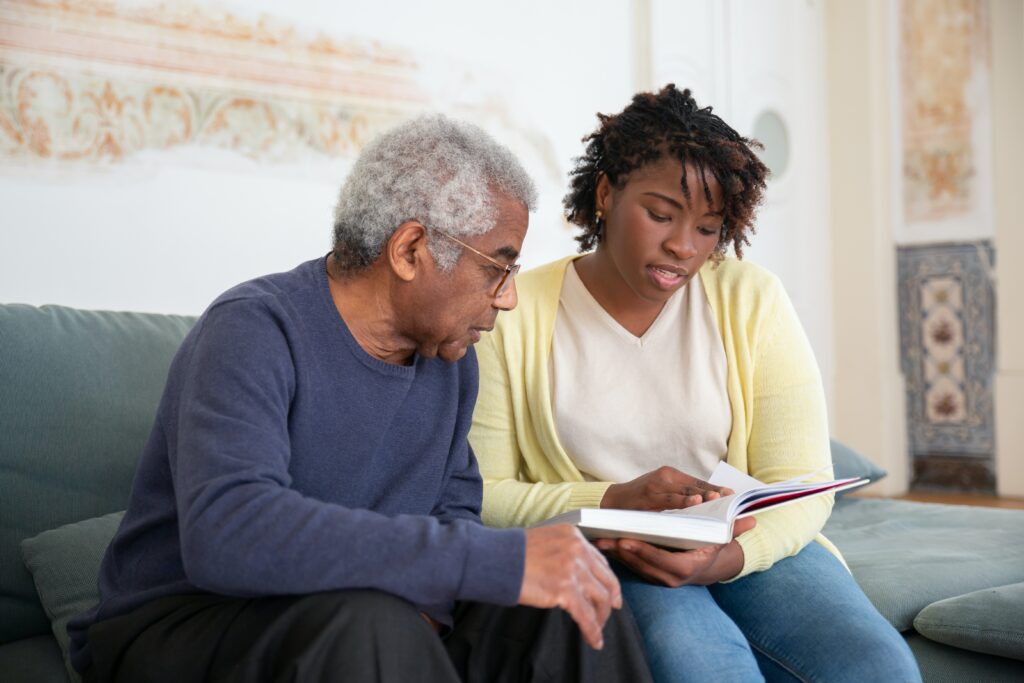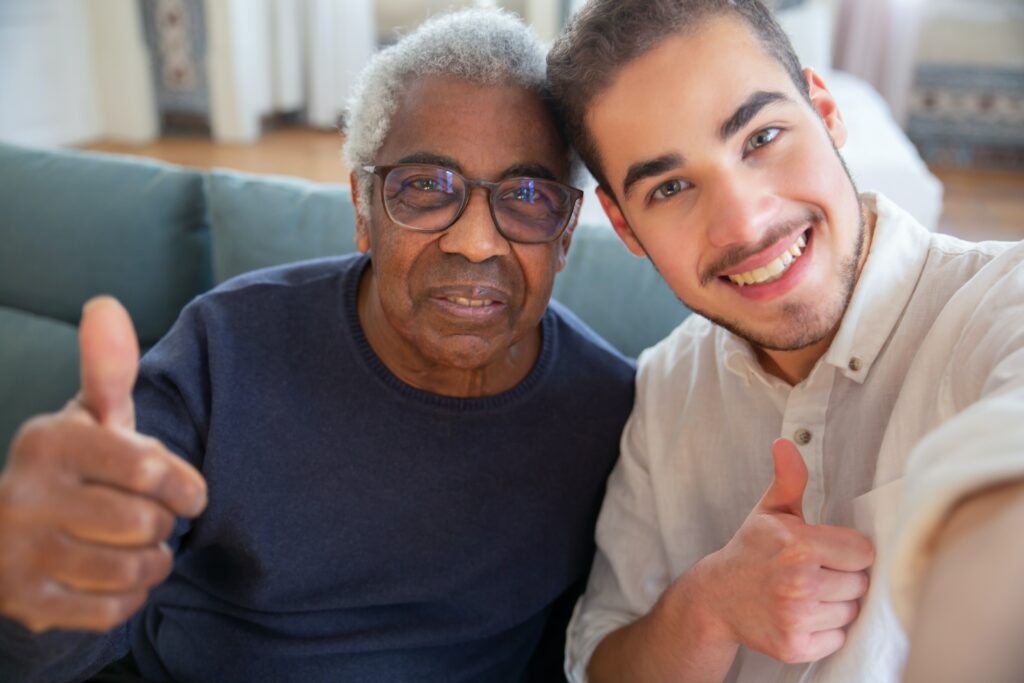The Main Responsibilities Of A Senior Caregiver
Taking care of an elderly loved one can be a rewarding experience, but it can also be challenging and sometimes overwhelming. As a caregiver, it’s important to understand your responsibilities and to be prepared to handle the various challenges that may arise.
Here are some key responsibilities to remember when caring for an elderly family member or friend.
Common Responsibilities Of A Senior Caregiver
According to Care.com, the caregiving requirements of each senior vary depending on their needs and preferences, but it can be assumed that the duties and responsibilities below are performed at some point in the care cycle.
Assistance with Activities of Daily Living (ADLs)
As people age, they may require assistance with activities of daily living (ADLs) such as bathing, dressing, eating, toileting, and transferring. As a caregiver, it is important to be familiar with your loved one’s specific needs and limitations and to be prepared to assist as needed. Some of the things you need to do are helping your loved one with basic hygiene, preparing meals, and ensuring that they can move around safely.
Medication Management
Many elderly individuals require medication to manage chronic health conditions, and it is important to ensure they take their medication as prescribed. As a caregiver, you may administer medications, monitor potential side effects, and ensure that prescriptions are refilled as needed.
Safety and Fall Prevention
Elderly individuals are at an increased risk of falls and other accidents, so it is important to take steps to ensure their safety. Ensuring your older loved ones are safe from accidents and falls may involve making modifications to the home environment, such as installing grab bars in the bathroom or removing tripping hazards, as well as providing assistance with mobility and activities that may be risky.
Read Also: Emergency Preparedness: A Guide To Everything You Need To Know
Social and Emotional Support
Caring for an older loved one can be emotionally and mentally taxing, and providing social and emotional support and physical care is important. Giving emotional support to an older loved one may involve:
- Spending time with your loved one.
- Engaging in activities together.
- Ensuring that they have access to social connections outside of the home.
Read Also:
Other Lesser-Known Senior Caregiver Roles
In addition to the commonly recognized responsibilities of a senior caregiver, such as assisting with daily activities, managing medications, and providing emotional support, caregivers may play several lesser-known roles.
According to Home Care Assistance, these less visible roles are often skipped over, which could negatively affect your loved one’s health and safety. Here are some examples:
Coordinator of Care
Caregivers often act as care coordinators, working with healthcare providers, family members, and other individuals to ensure that their loved one receives comprehensive and coordinated care. Coordinating care for a senior may involve scheduling appointments, managing medical records, and communicating with healthcare providers about their loved one’s needs.
Advocate for their Loved One
As a caregiver, you may be responsible for advocating for your loved one’s needs and communicating with healthcare providers, family members, and other individuals involved in their care. Advocating for your loved one may involve:
- Accompanying your loved one to doctor’s appointments.
- Asking questions about treatment plans.
- Ensuring that your loved one’s needs are being addressed.
Provider of Respite Care
Caregivers may also provide respite care, which involves arranging temporary care for their loved one to give themselves a break. Respite care can prevent caregiver burnout and maintain the caregiver’s health and well-being.
Financial Planner
In some cases, caregivers may be responsible for managing their loved one’s finances, such as paying bills, managing bank accounts, and overseeing investments. Managing finances for your loved one can be challenging, so it is important to ensure that you have the necessary knowledge and resources to handle financial matters appropriately.
Educator and Information Resource
Caregivers may act as educators and information resources, providing their loved ones with information about their health conditions, treatment options, and community resources. They may also educate family members and others about the challenges of caregiving and the resources available to support caregivers and their loved ones.
Bottomline
Overall, senior caregivers play a multifaceted role in providing care and support to their loved ones. While many of these roles may be unknown or unrecognized, they are essential to ensuring that the needs of the elderly are met and that caregivers can provide high-quality, sustainable care over the long term.
If you want to learn more about senior caregiving, our guide to senior caregiving can help you get started.






